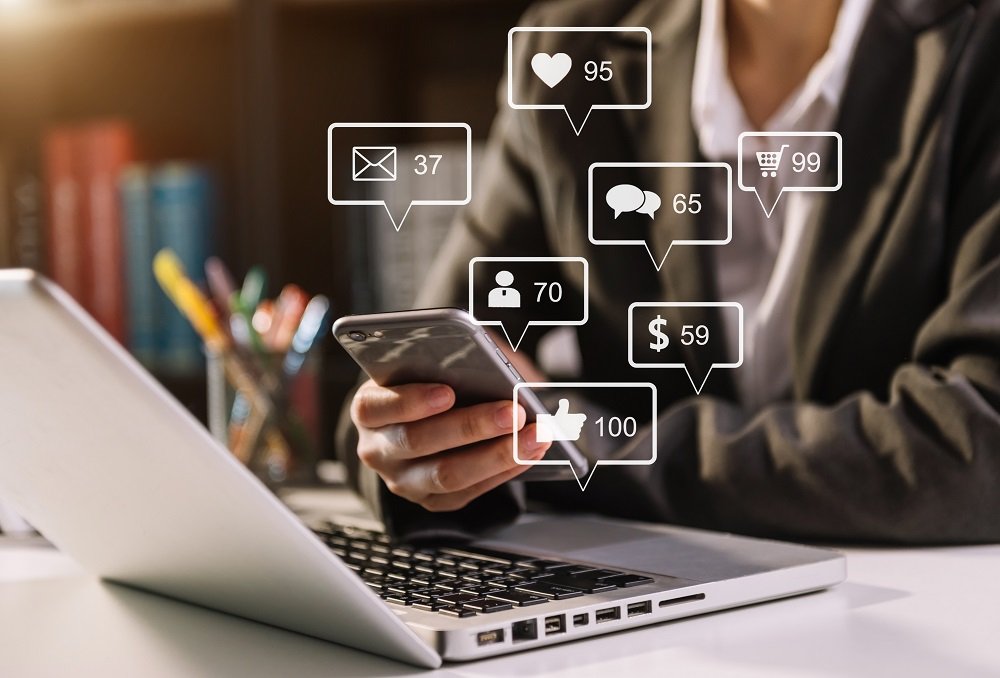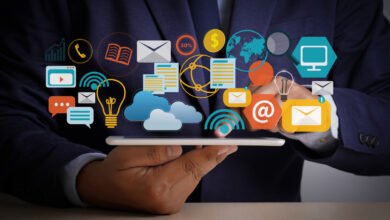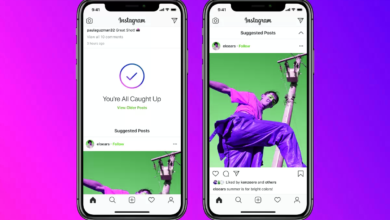Navigating the 5 Benefits and Drawbacks of Social Media in Today Digital Age

In this article, we will explore the Benefits and Drawbacks of Social Media and how to navigate them in today’s digital age. Social media has become an integral part of our lives, from connecting with friends and family to promoting our businesses and brands. It has become a powerful tool for communication, information sharing, and even entertainment. However, with its widespread use, it also comes with its fair share of benefits and drawbacks.
The Benefits of Social Media
Connection and Networking
Social media platforms allow us to connect with friends, family, and colleagues from all over the world. It has made communication faster and easier, enabling us to keep in touch with loved ones and build relationships with people we may not have met otherwise. Additionally, social media can also facilitate networking for business and career opportunities.
Business Opportunities
Social media has become an essential tool for businesses and entrepreneurs to reach a wider audience and promote their products or services. It allows them to target their ideal customers and build brand awareness. Social media also offers various marketing tools, such as sponsored posts, that can help businesses increase their sales and revenue.
Information Sharing and Education
Social media has revolutionized the way we access and consume information. It has become a valuable source of news, entertainment, and education. Social media platforms such as YouTube and TikTok have also become popular channels for online learning and skill development.
Entertainment and Creativity
Social media platforms offer endless opportunities for entertainment and creativity. From funny memes to viral challenges, social media has become a hub of creativity and self-expression. It has also become a platform for artists, musicians, and creators to showcase their talent and gain recognition.
Social Causes and Activism
Social media has become a powerful tool for social causes and activism. It has enabled individuals and organizations to raise awareness and advocate for various issues, such as climate change, social justice, and human rights. Social media has also provided a platform for marginalized groups to voice their concerns and experiences.
The Drawbacks of Social Media

Cyberbullying and Trolling
One of the most significant drawbacks of social media is the prevalence of cyberbullying and trolling. The anonymity and distance provided by social media make it easier for individuals to engage in negative behavior towards others. This can have severe consequences for the mental health and well-being of the victim.
Addiction and Time Wasting
Social media can be highly addictive, leading to individuals spending excessive amounts of time scrolling through their feeds or interacting with others online. This can have detrimental effects on their productivity, mental health, and relationships.
Privacy and Security Concerns
Social media platforms have been subject to numerous privacy and security concerns, such as data breaches and hacking. Personal information shared online can be used for malicious purposes, such as identity theft and fraud.
Spread of Misinformation and Fake News
The ease of sharing information on social media has led to the spread of misinformation and fake news. This can have serious consequences, especially in areas such as public health and politics, where false information can lead to harmful decisions and actions.
Mental Health Issues
Social media can also have negative effects on mental health, such as increased levels of anxiety, depression, and loneliness. The constant comparison to others, unrealistic standards of beauty and success, and exposure to negative news and events can take a toll on one’s mental well-being.
Navigating the Benefits and Drawbacks of Social Media

Despite its drawbacks, social media can still be a valuable tool when used mindfully and responsibly. Here are some tips on how to navigate the benefits and drawbacks of social media:
Set Boundaries and Limitations
Set boundaries for your social media use, such as limiting your screen time or avoiding social media during certain times of the day. This can help you prioritize other activities and relationships in your life.
Choose the Right Platforms
Choose social media platforms that align with your values and interests. This can help you avoid exposure to negative content and engage with a community that supports and inspires you.
Be Mindful of What You Share and Consume
Be mindful of the content you share and consume on social media. Avoid spreading false information or engaging in negative behavior towards others. Instead, focus on sharing positive and uplifting content that adds value to your community.
Maintain a Healthy Balance
Maintain a healthy balance between your social media use and other activities in your life, such as exercise, hobbies, and spending time with loved ones. This can help you avoid the negative effects of excessive social media use.
Read More:Building Personal Brand on Social Media Platforms: Tips and Tricks.
Educate Yourself on Digital Literacy and Safety

Educate yourself on digital literacy and safety, such as how to protect your privacy online and avoid cyberbullying. This can help you use social media in a safe and responsible manner.
Conclusion
In conclusion, social media can be a valuable tool for connection, information sharing, and creativity. However, it also comes with its fair share of drawbacks, such as cyberbullying, addiction, and privacy concerns. By navigating these benefits and drawbacks mindfully and responsibly, we can make the most of social media in today’s digital age.
FAQs
- Can social media really cause mental health issues? Yes, studies have shown that excessive social media use can lead to increased levels of anxiety, depression, and loneliness.
- How can I avoid exposure to negative content on social media? You can choose to follow accounts that align with your values and interests and avoid engaging with or sharing negative content.
- Is it safe to share personal information on social media? It’s important to be mindful of the information you share on social media and adjust your privacy settings accordingly to protect your personal information.
- Can social media really be a tool for social activism? Yes, social media has been used as a tool for raising awareness and advocating for social causes, such as human rights and climate change.
- How can I use social media mindfully and responsibly? You can set boundaries and limitations on your social media use, choose the right platforms, be mindful of what you share and consume, maintain a healthy balance, and educate yourself on digital literacy and safety.












One Comment